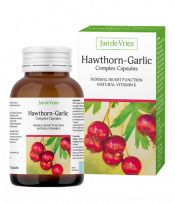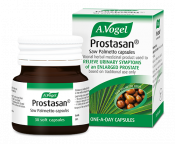An introduction to cholesterol
Cholesterol is a type of fat found in the bloodstream and the cell membranes of all body tissues. The majority of cholesterol is made by the liver from saturated fats in our diet. Cholesterol is rarely found in food, except in eggs, liver and kidneys.
Cholesterol is used in various ways throughout the body, including to:
- Make hormones
- Help build cell walls
- Aid brain and nerve function
- Synthesise vitamin D.
It is also converted by the liver into bile acids, which help us digest food.
Types of cholesterol
Cholesterol is carried to and from the liver, to tissues and arteries, by proteins. The combination of protein and cholesterol is called a lipoprotein. There are two forms of lipoproteins:
LDL (bad cholesterol) – this carries cholesterol from the liver to the cells.
HDL (good cholesterol) – this carries any cholesterol that isn't needed back to the liver where it can be broken down.
If you have more LDL than HDL, then the cholesterol levels in your tissues and bloodstream will rise.
What is high cholesterol?
When cholesterol levels are high, the substance builds up around the artery walls. Eventually, this can lead to a problem known as atheroma which is when fatty deposits gather on the artery walls.
Arteries are responsible for carrying blood away from the heart to other parts of the body. So, if there is less space for blood to pass through here, the pressure on the arteries will increase and, as a result, blood pressure can rise and the likelihood of a heart attack increases.
Cholesterol levels may need to be judged on an individual basis but, in general, here are some guidelines on good and bad cholesterol:
- Total cholesterol levels are believed to be best below 5.
- HDL levels are believed to be best above 1.5.
- LDL levels are believed to be best below 3. Levels over 4.5 are thought to be high.
- Triglyceride levels (a type of fat) are believed to be best below 2. Levels over 5 are thought to be high.

What causes high cholesterol?
There are various factors that can influence cholesterol levels. Many of these are linked to diet and lifestyle, though sometimes the problem can run in families too.
Hereditary factors – this may mean that we are slow to take up cholesterol from the blood into the tissues. This will increase the overall amount of cholesterol in the bloodstream.
Saturated fats – eating a high quantity of saturated fats (which are found in butter, cheese, fatty meats and more) will increase the likelihood of high cholesterol. The liver is capable of synthesizing the cholesterol needed for bodily functions but this means additional sources in our diet may cause a surplus.
Hydrogenated or trans fats – the body isn't used to these so eating them in large amounts will encourage the production of cholesterol and, in turn, raise cholesterol levels in the tissues and bloodstream. Trans fats are found in processed foods like pizza, fast food, cakes and biscuits.
Calorie intake – extra calories are stored as fat which can influence our health and cholesterol levels.
Smoking – this can speed up atheroma.
High cholesterol amongst men
The biological differences between men and women may increase the risk of developing high cholesterol.3
The male sex hormone testosterone, for example, can contribute to a rise in LDL cholesterol, which is the type that furs up the arteries and contributes to heart disease. Men also lack the protective effects of oestrogen, which tends to increase HDL "good" cholesterol and decrease LDL "bad" cholesterol.
How to reduce cholesterol
Various measures can be taken to manage and lower cholesterol levels.
Diet and lifestyle
Reduce intake of high sugar foods and refined carbohydrates (white bread, flour, rice, pasta etc.)
- Reduce consumption of saturated fats and trans fats (unhealthy fats)
- Minimise coffee and alcohol intake
- Increase consumption of foods including beans, oats, green leafy vegetables, fruit, ginger buckwheat and other vegetables
- Stop smoking
- If you aren't vegan or vegetarian, eat oily fish like herring, sardines, mackerel and salmon
- Exercise daily – a 20-minute walk is very helpful.
Supplements
- Hawthorn and garlic have traditionally been used to support heart function, blood pressure and circulation. You can find both these ingredients in A.Vogel's Hawthorn-Garlic complex.
My Top Tip:

Take 1 capsule of Hawthorn-Garlic twice daily.
"I always take capsules in preference to tablets. Hawthorne is the best herb for the heart/circulation and I like the fact it is combined with something as beneficial as garlic."

Conventional remedies
Where dietary and lifestyle changes fail to influence cholesterol levels, doctors may prescribe certain medications.
Statins are widely used to help manage high cholesterol. These work by reducing the overall amount of cholesterol produced by the body.
Unfortunately, statins have been associated with side effects such as muscle and joint pain and diabetes.4 Therefore, doctors often encourage patients to adopt a healthier lifestyle to help manage cholesterol levels, before turning to medication.
When to see a doctor
A blood test is the only way to tell if your cholesterol is high as the issue itself does not cause any specific set of symptoms. Your GP will be able to arrange this test for you.
Your GP may suggest you have your cholesterol checked if you are over 40, you have not had a cholesterol test before, you are overweight or if heart problems or high cholesterol run in your family.
If you are concerned about high cholesterol, you can speak to your GP at any time and they will be able to advise further.
References
1 https://www.heartuk.org.uk/
2 https://floraproactiv.co.uk/cholesterol/cholesterol-levels/what-are-normal-cholesterol-levels/
3 https://www.ncbi.nlm.nih.gov/books/NBK222288/
4 https://www.thelancet.com/journals/lancet/article/PIIS0140-6736(16)31357-5/fulltext








